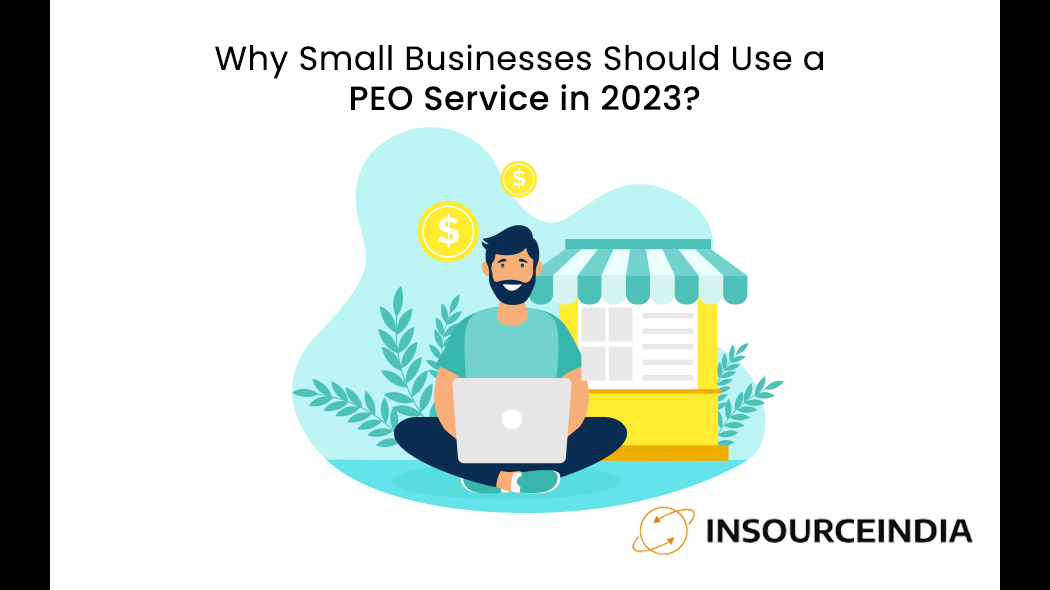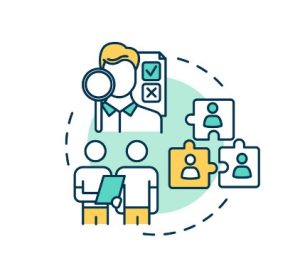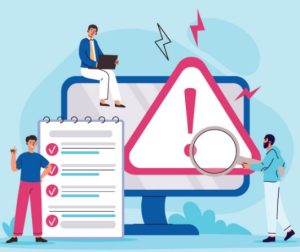In the constantly evolving business landscape, small businesses face unique challenges in managing their human resources effectively. As we enter 2023, the role of Professional Employer Organization (PEO) services has become increasingly vital for the growth and success of small businesses. PEOs offer a wide range of HR solutions, enabling small businesses to streamline their operations, reduce costs, and focus on their core competencies.
In this article, we will explore the key reasons why small businesses should consider utilizing PEO services in 2023:
 Cost Savings
Cost Savings
One of the primary advantages of partnering with a PEO is the potential for significant cost savings. According to a study conducted by the National Association of Professional Employer Organizations (NAPEO), small businesses that work with PEOs have a 21% lower employee turnover rate and are 50% less likely to go out of business. These benefits directly translate into cost savings associated with recruiting, training, and onboarding new employees.
PEOs also provide access to large-group benefits and insurance plans, leveraging their economies of scale. This allows small businesses to offer competitive employee benefit packages without incurring exorbitant costs. In fact, NAPEO reports that small businesses utilizing PEO services are 63% less likely to experience increases in healthcare costs.
Cost saving benefits such as:
1. Economies of Scale:
a) PEOs pool together multiple small businesses, allowing for better negotiation power for employee benefits and insurance plans.
b) Access to comprehensive benefits at lower costs.
2. Reduced Payroll Processing Costs:
a) PEOs handle payroll processing tasks, eliminating the need for in-house payroll staff or expensive payroll software.
b) Savings on administrative costs associated with payroll processing.
3. Risk Mitigation and Workers’ Compensation:
a) PEOs provide expertise in managing workers’ compensation claims and implementing risk management strategies.
b) Reduction in insurance premiums and financial impact of workplace accidents.
4. Compliance Management:
a) PEOs stay up to date with employment laws, ensuring small businesses remain compliant.
b) Avoidance of legal penalties and lawsuits, saving significant amounts of money.
5. Affordable Access to HR Expertise:
a) PEOs offer access to a team of HR professionals without the cost of maintaining an in-house HR department.
b) Guidance on complex HR issues at a fraction of the cost.
6. Lower Employee Turnover Costs:
a) PEOs help small businesses attract and retain top talent with competitive benefits packages.
b) Reduced costs associated with recruiting, training, and onboarding new employees.
7. Streamlined Administrative Processes:
a) PEOs automate administrative tasks, reducing manual paperwork and burdens.
b) Time and resource savings, improving efficiency.
8. Access to Advanced HR Technology:
a) PEOs provide small businesses with access to sophisticated HR software and tools.
b) Elimination of costly software investments and IT infrastructure expenses.

Enhanced HR Expertise
Small businesses often struggle to manage complex HR functions while trying to grow their core business. PEOs offer a team of HR experts who possess extensive knowledge and experience in handling various HR activities, including payroll processing, benefits administration, compliance management, and risk mitigation.
Businesses that partner with PEOs can experience a 20 to 25% reduction in administrative costs. By outsourcing HR responsibilities to PEOs, small businesses can tap into specialized expertise, ensuring compliance with ever-changing employment laws and regulations. This enables entrepreneurs to focus on strategic business initiatives, fostering growth and innovation.
Enhanced HR expertise Benefits such as :
1. Access to HR Specialists:
a) PEOs provide small businesses with access to a team of HR specialists who possess extensive knowledge and experience in various HR functions.
b) Expertise in areas such as payroll processing, benefits administration, compliance management, and employee relations.
2. Compliance with Employment Laws:
a) PEOs stay up to date with ever-changing employment laws and regulations, ensuring small businesses remain compliant.
b) Assistance with drafting HR policies, implementing workplace safety protocols, and conducting necessary training.
3. Risk Mitigation:
a) PEOs offer risk management services, helping small businesses identify and mitigate potential HR-related risks.
b) Guidance on legal compliance, reducing the likelihood of penalties, lawsuits, and reputational damage.
4. Employee Handbook and Policy Development:
a) PEOs assist in developing comprehensive employee handbooks and HR policies tailored to the specific needs of small businesses.
b) Ensuring consistency, clarity, and compliance in HR policies and procedures.
5. Performance Management:
a) PEOs provide guidance on performance management strategies, including setting performance goals, conducting performance evaluations, and implementing performance improvement plans.
b) Improved employee productivity and engagement through effective performance management.
6. Employee Training and Development:
a) PEOs offer training and development resources to enhance the skills and knowledge of small business employees.
b) Access to online training modules, webinars, and workshops to foster professional growth.
7. Employee Relations and Conflict Resolution:
a) PEOs assist in managing employee relations issues and provide guidance on conflict resolution.
b) Mediation services to resolve disputes and maintain a positive work environment.
8. HR Strategy and Planning:
a) PEOs collaborate with small businesses to develop HR strategies aligned with their long-term goals.
b) Guidance on workforce planning, talent acquisition, and succession planning.
 Access to Technology and Tools
Access to Technology and Tools
In today’s digital age, technology plays a crucial role in optimizing business processes. Small businesses often lack the resources to invest in advanced HR technologies and tools. By engaging a PEO, these businesses gain access to state-of-the-art HR software, payroll systems, time and attendance tracking tools, and other technological solutions that improve efficiency and accuracy.
Automation of administrative tasks through PEO services reduces errors and eliminates time-consuming manual processes. Moreover, PEOs offer online portals and self-service platforms for employees to access their payroll information, benefits details, and other HR-related resources. Such access empowers employees and fosters a culture of transparency and engagement within the organization.
Access to technology and tools such as:
1. Advanced HR Software:
a) PEOs provide small businesses with access to advanced HR software and tools.
b) Efficient management of HR processes such as payroll, benefits administration, and time tracking.
2. Payroll Systems:
a) PEOs offer robust payroll systems that automate calculations, tax deductions, and direct deposits.
b) Streamlined payroll processing, reducing errors and saving time.
3. Employee Self-Service Portals:
a) PEOs provide online portals where employees can access their payroll information, benefits details, and update personal information.
b) Empowerment of employees to manage their own HR-related tasks, reducing administrative burdens.
4. Time and Attendance Tracking:
a) PEOs offer time and attendance tracking tools, including digital time clocks and online timesheets.
b) Accurate tracking of employee work hours, facilitating payroll processing and reducing manual errors.
5. Benefits Administration:
a) PEOs utilize technology to streamline benefits administration processes, including enrolment, changes, and claims management.
b) Simplified benefits administration for small businesses, saving time and ensuring accuracy.
6. HR Reporting and Analytics:
a) PEOs provide comprehensive HR reporting and analytics capabilities.
b) Access to data-driven insights and reports on HR metrics, aiding in strategic decision-making.
7. Compliance Management Tools:
a) PEOs offer compliance management tools to ensure adherence to employment laws and regulations.
b) Automated reminders, documentation tracking, and reporting to maintain compliance.
8. Integration Capabilities:
a) PEOs can integrate their HR technology with existing systems, such as accounting software or applicant tracking systems.
b) Seamless flow of data between different platforms, enhancing efficiency and reducing manual data entry.
 Compliance and Risk Management
Compliance and Risk Management
Navigating the complex landscape of employment laws, regulations, and compliance requirements can be daunting for small businesses. Failure to comply with these obligations can result in legal penalties, lawsuits, and damage to a company’s reputation.
PEOs shoulder the responsibility of compliance and risk management, keeping businesses up to date with evolving employment laws and regulations.
They provide assistance with drafting HR policies, handling workplace safety protocols, managing employee relations, and conducting necessary training. By staying compliant, small businesses can avoid potential legal and financial pitfalls and focus on driving their success.
Benefits of Compliance & Risk Management by PEO’s
1. Expertise in Employment Laws and Regulations:
a) PEOs stay updated on the latest employment laws and regulations, ensuring small businesses remain compliant.
b) Guidance in navigating complex legal requirements, reducing the risk of penalties and lawsuits.
2. HR Policy Development:
a) PEOs assist in developing comprehensive HR policies tailored to small businesses.
b) Ensuring compliance with employment laws and promoting a fair and inclusive work environment.
3. Workplace Safety and Risk Mitigation:
a) PEOs provide guidance on implementing workplace safety protocols and best practices.
b) Minimization of workplace accidents, injuries, and associated costs.
4. Employee Handbook and Compliance Documentation:
a) PEOs assist in creating and updating employee handbooks, ensuring compliance with applicable laws and regulations.
b) Documentation of policies and procedures for legal protection and consistency.
5. Compliance Training and Education:
a) PEOs offer training resources to educate employees on compliance-related topics.
b) Enhanced understanding of legal obligations, fostering a compliant workplace culture.
6. Regulatory Reporting and Recordkeeping:
a) PEOs assist in maintaining accurate records and preparing regulatory reports.
b) Avoidance of penalties and fines due to incomplete or inaccurate documentation.
7. Employment Practices Liability Insurance (EPLI):
a) PEOs often provide EPLI coverage to small businesses, protecting against legal claims related to employment practices.
b) Mitigation of financial risks associated with lawsuits and legal defense costs.
8. Ongoing Compliance Support:
a) PEOs provide ongoing support and guidance on compliance matters.
b) Regular updates on changing regulations and proactive assistance in implementing necessary changes.
In 2023, small businesses should seriously consider leveraging PEO services to gain a competitive edge. By partnering with a PEO, small businesses can achieve cost savings, access expert HR knowledge, utilize advanced technology, and ensure compliance with employment regulations. These advantages empower entrepreneurs to focus on their core business objectives, enhance productivity, and foster long-term growth. As the business landscape continues to evolve, small businesses that embrace PEO services will position themselves for success in the years to

 Cost Savings
Cost Savings
 Access to Technology and Tools
Access to Technology and Tools Compliance and Risk Management
Compliance and Risk Management